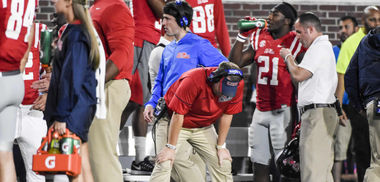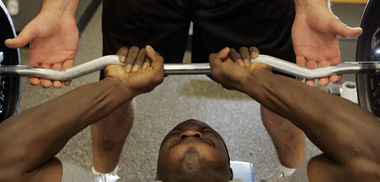

How A Clear Purpose Drives Great Leadership
Warm Up
An important characteristic of an effective leader is their ability to confidently lead from a clear sense of purpose. Ultimately those leaders that are most confident in the purpose to which they’ve been called are the leaders that are most effective.
A certainty of purpose comes when leaders embrace the “paradox of personal freedom”— ultimately this unleashes them to realize their God-given potential through their leadership.
Workout
The paradox of personal freedom is simply this: We are most free when we are constrained by the right things.
A leader’s biggest challenge is fighting against a culture that associates the concept of freedom with having an unlimited number of options. This type of thinking is certainly a byproduct of the time in which we live—where personal freedom and the ability to pilot one’s own destiny is regarded as an ultimate good to which we all should aspire.
But unrestricted personal autonomy is a false idol that dilutes the potency of our leadership and puts a ceiling on our effectiveness.
The paradox of personal freedom encapsulates the reality that we are most free not when we have an unlimited number of choices, but rather when our principles and purpose have already made the decision for us in advance.
Potent leadership results when a leader’s philosophy flows from their convictions—not their feelings, their emotions or their subjectivity. Leaders will ultimately lead most effectively when the strength of their convictions unleash them to be the leaders they were created to be.
Effective leadership becomes difficult when the strength of our convictions are drowned out by the innumerable number of options we could choose.
The wealth of options we face today has extended personal freedom to an extent that would have been inconceivable even a hundred years ago. But the inevitable consequence of equally attractive choices is uncertainty of purpose; uncertainty, in turn, saps resolution, and lack of resolve ends up devaluing choice
Flow by Mihaly Csikszentmihalyi
As leaders, we often fail to struggle for a certainty of purpose because we spend so much time wading through the noise of the overwhelming details that demand our immediate attention. In order to effectively lead, we need a clear purpose that comes from a holistic vision of who we were created to be and knowing how that vision will define our leadership.
The Celery Test
Leadership author Simon Sinek gave came up with the “Celery Test” to help us see the crucial relationship between our habits, discipline, and purpose play and our decision making.
Imagine you are at a grocery store and you are hungry. You grab some potato chips, a salad, some deli meat, a tube of ice-cream, celery, and some fried chicken. You take a little bit of this and little bit of that. If someone were to look into your grocery cart what would they see? They would see someone without a clear purpose regarding food choice.
BUT
Imagine that in that same scenario you decided that you are the type of person who only puts things in their body that are good for them. Imagine that you allowed your principles and core beliefs about living a healthy life to create a list ahead of time so you no longer had to make a “choice” between ice cream and carrots.
Suddenly, your shopping trip just got a lot easier and you gained more certainty and clarity in your decision-making process because your beliefs about being healthy actually limited your options in a good way.
You embraced a standard that makes it easy to decide what to put in your cart. Now when someone walks by they see celery and vegetables in the cart, and they say to themselves, “That person must be a healthy eater who is concerned with what they put in their body.” This is how great leaders operate.
Jesus knew the power of eliminating superfluous choice when he called his disciples to follow him no matter the cost. He asked his disciples to base their identity on Him and him alone.
The result is that His followers were—and are—able to live and lead with an incredible clarity of purpose because He challenges us with the wonderfully limited option of following Him and Him alone.
As leaders we are called to live lives of real freedom with incredible certainty, because Jesus has laid out the path when he told his followers to “enter through the narrow gate.” Surprisingly, the second we step foot through the narrow gate we find that the path of discipleship is not so limiting at all.
Cooldown
Perform a “celery test” on yourself.
Where am I right now?
If someone else was to look in the “personal shopping cart” of your life, what would THEY say are your core convictions from what they see?
Examples might include:
- Quick Tempered
- Tireless Worker, Lead through Action
- Doesn’t take responsibility
Where do I want to go?
If someone else was to look in your own “personal shopping cart” what would you WANT them to say defines your leadership?
- Passionate Servant
- Courageous Risk Taker
- Responsible
How will I get there?
What are the behaviors or habits that I need to change to get from where I am to where I want to be?
You path of intentionality might include:
- Daily Meditation
- Scheduled physical activity
- Resist urge to make excuses












